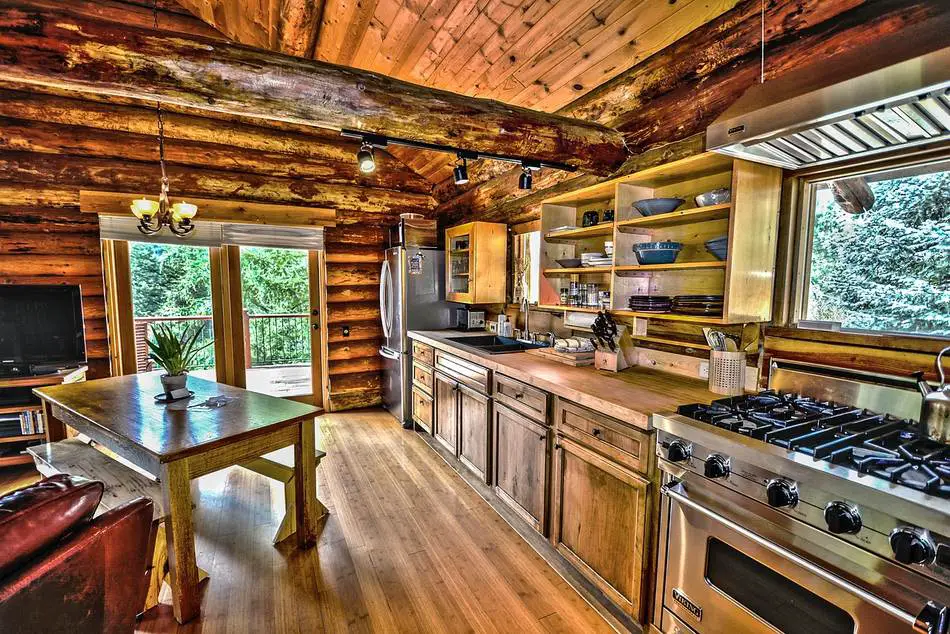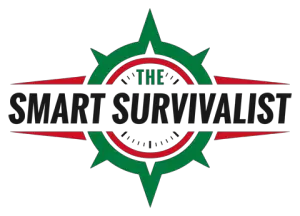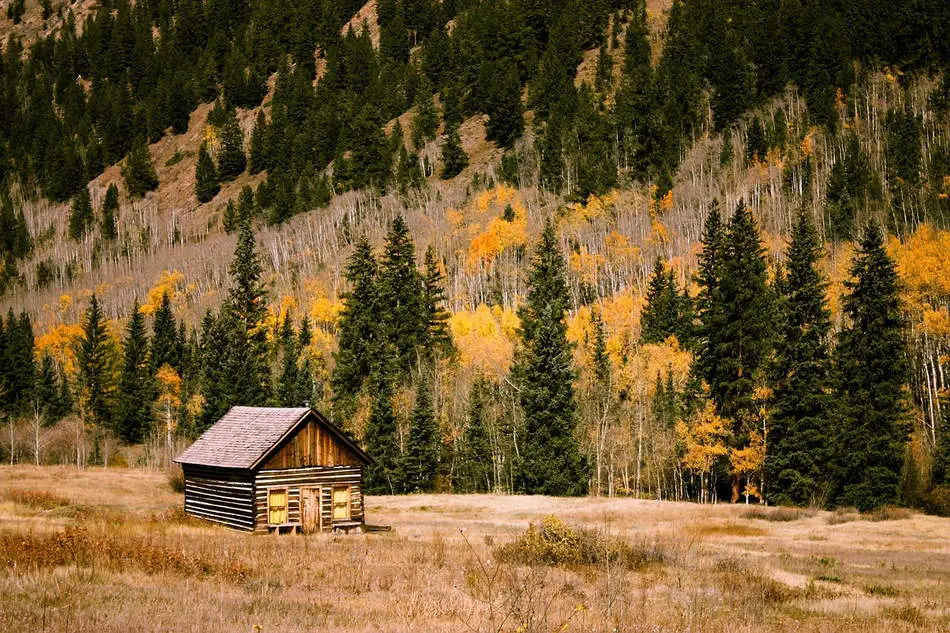Recent years saw a steep rise in people desiring to live off grid in Canada (and the U.S. as well). Consequently, there are a lot of questions and debates whether this is legal or not. As a proponent of the off grid living, I did some research to give all of you a clear and concrete answer.
Is living off grid illegal in Canada? Living off grid is not illegal in Canada. Your house can be solar powered, you can grow your own food, and so on. However, there are national building codes that you must follow. Also, you cannot squat on someone else’s land.
As you can see, the real answer is somewhat complicated. We need to go deeper into what you can and cannot do – that is, if you wish to be left alone and not bothered by the local authorities. So let’s proceed to the full answer.
The following video summarizes this article:
Is It Illegal to Live Off Grid in Canada?
First of all, what exactly is “off grid”? In the classic meaning of the term, it means that your abode is not connected to the country’s power grid. The off-gridders produce their own electricity, usually by using solar panels. They also tend to cultivate a garden, growing their own crops or even livestock. This arrangement can work as a self-sustained miniature farm. And it’s perfectly legal.
However, some restrictions apply. There is a somewhat known case in the off grid community, about a woman in Nova Scotia. She tried to live in her own tiny off-grid house, because she did not wish to leave a footprint on the world. A commendable, ecologically aware desire. But then the local authority has denied her occupancy. The building codes demand that every occupied space must have ventilation and smoke detectors.
Her house now stands empty, because there are restrictions that you must be mindful of. Always check your local building codes. In her case, a solution actually exists. She can install smoke detectors and a ventilation system, and power them by batteries or a solar collector.

Can I Live Off Grid if I Don’t Own The Land?
Here is where the real troubles start. There are no squatter rights in Canada. You can’t just place your small house or tent on a random patch of land. The law will come after you. It’s even worse if you are not an actual Canadian resident.
There is also a question of how “off grid” you desire to be. The aforementioned Nova Scotian lady was somewhat extreme, as she intended to live without the electricity. Some imagine “off grid” as completely living in the woods, hunting and foraging. But how many of us truly wish to give up on all the benefits of the modern civilization?
This is where the land ownership once again comes into play. Building on someone else’s lot prevents you from enjoying some of the common comforts. For instance, receiving letters and parcels with your online purchases. The Canadian government and Canada Post will not play along with your off grid initiative. They already have their own system of street names and house numbers. The governing body will not accept any illegal subdivision of the land that already has a permanent address.
The same goes for other services you’d like to have in your off grid home. Purists might scoff at this, but some of us would still like to enjoy an access to the Internet, a phone, maybe a satellite TV. These, of course, are supplied by various companies, and the companies will require a legal street address before they install their services.
Here is more information on buying land in Canada to live off the grid:
Do You Have to Pay Taxes If You Live off the Grid?
Living off the grid usually does not mean you become a completely free man, who stands up to the government and is completely independent of the country’s laws. You can grow your own food and produce your own electricity, but it is not possible to completely avoid taxes.
First of all, there are the usual income taxes that every citizen pays. Even if you see yourself ideologically free from the state and the government, no one can avoid the taxman forever. You might be self-sufficient, but the state still need the money to fix the roads, among other things.
Additionally, even if you have the permit to build and you own the property, there are of course property taxes. These mostly depend on the square footage, but also on several other factors, such as the geographical location. Find out what the local law in your area says about the property taxes before you decide the settle.
Can I Insure Myself If I’m Living off the Grid?
The off-gridders invest a lot of time and sometimes money into their homes. So, along with the legality question, they started asking whether they can be covered by insurance. The solar panels alone can sometimes cost tens of thousands of dollars, a solid investment that should be insured. Not to mention the house, its surroundings and, of course, the people living there.
This is where it gets tricky, according to many insurance companies. Among their concerns is the off grid lifestyle. If you live with no heat or water, they will refuse to insure you. If your house has a stove or a fireplace and is made of wood, they will see it as a fire hazard and, again, will refuse to insure. What you should do is to consult with a representative of a more willing company and see whether you need to upgrade your house in order to get it insured. If you have taken all the necessary precautions, if you are not living in unhealthy conditions, then the insurance is possible.
All in all, different provinces have different laws and living conditions, which is why I would like to invite you to read my article on the best places to live off the grid in Canada.
How Do I Provide for Myself When I Live off the Grid?
There are proven methods to turn your lot into a mini-farm, which will provide you with food all year long. How it’s done? For a complete answer, I would sincerely recommend checking “The Encyclopedia of Country Living: The Original Manual for Living off the Land & Doing It Yourself” that has over 500 positive reviews on Amazon. The book offers current and thorough information on such important topics as raising livestock, growing homegrown food, food preservation, beekeeping, sourcing supplies by mail, and so much more.
Sometimes you are limited by the size of your land, in which case a truly good read would be the #1 bestseller “Mini Farming: Self-Sufficiency on 1/4 Acre”, also available on Amazon. It describes an original approach to small-area farming and helps you to produce at least 85% of your family’s food on just a quarter of an acre. This excellent book also teaches how to earn thousands of dollars annually while spending significantly less time than you would on your old, urban job.
How about Living Off Grid in the USA – Is It Legal?
The stipulations that were mentioned in this pot can apply to the United States, too. Always check what the relevant state laws say before you build or purchase an off grid home.
One of the limitations that the USA law has established is regarding a campsite. Even if you own the land, you cannot camp on it for more than 14 to 16 days. Sometimes camping is necessary: if you’re building the off grid cabin, you will probably live in a tent nearby until it’s ready. But since a long stay in the camp is illegal, you are stuck in a loop. Make sure you have a permit for a long-term camping before you even start working on your new house.
Another restriction is the square footage. In some counties and cities, your tiny house can’t be too tiny. The same goes for the entire lot. Usually a home must be at least 500 to 1000 square feet, while the lot needs to be at least 5 to 10 acres (in rural areas).
You are also required to own a steady water source. If you have a well or can dig one, you’ve hit the freedom jackpot. However, in many counties this is not enough. They will demand that you connect your home to the city’s water system (and pay a fee). This might not be the purest off grid living, but at least you will have less worries regarding sanitation.
For more details, see my posts on legality of living off the grid in the US as well as the best places to live off the grid in the USA.
Related Questions
How do you make money living off the grid? There are actually many possibilities. For instance, you can sell seeds and seedlings from your garden, or make oils and teas. If you have animals, you can sell eggs, milk, honey, meat. You can craft anything and sell your creations online. You can even write a guide book on living off the grid.
How much does it cost to live off grid? This is a complicated question to answer shortly. Suffice to say, a wind turbine or solar panels might cost around $30,000. If you are not building your house by yourself, buying such a house is about $50,000. But don’t let these prices deter you, it all pays off with interest in the long run.
Can you live off the grid in the city? It is possible, at least partially. The preferred way is to own a property with enough land for a garden, or at least a nearby lot where you can walk to and grow food. And if the necessary stores and services are close, you will not need a car, thus keeping your carbon footprint to a minimum.




